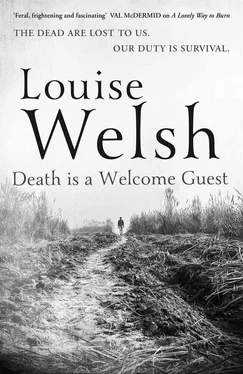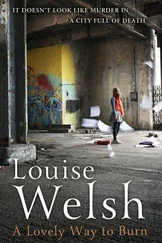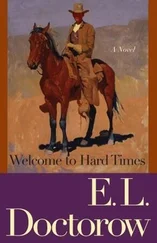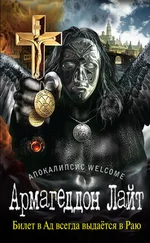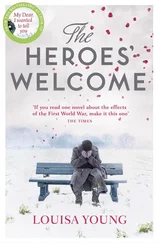Magnus said, ‘What’s keeping you here? Why don’t you leave?’
The priest put on his sunglasses, hiding his eyes again behind their dark lenses.
‘We have a perfect spot. Father Wingate’s right, it has the potential to be one of the foundations of a new society.’
‘There are other perfect spots.’
‘Which will also present their own problems. I’ve never been one for running away. If someone is killing people then I’d rather find them.’
There was something final in the priest’s voice. Magnus said, ‘What will you do with them, if you find them?’
The priest took a last swig from his water bottle and screwed its cap back on. He looked across the fields, as if he too wondered if anyone was watching them.
‘I was always a New Testament man, but we seem to find ourselves in Old Testament times.’
Raisha came to him that night. The image of her tramping the countryside, seeking dead children to bury, had lodged itself in Magnus’s mind. He had wondered how he would be if she were to seek him out — could he stand hands that had cradled rotting flesh caressing his flesh? He was asleep when Raisha clicked open the bedroom door. A gust of cool air entered with her and Magnus woke a moment before she pulled back his sheets and slid naked into bed beside him. He flinched and she whispered, ‘Is it okay?’
Magnus had begun to think of Raisha as a ghost flitting across the landscape in search of other ghosts, but now that she was beside him he could feel the heat of her body, the soft smoothness of her skin.
‘It’s okay,’ he answered, keeping his voice low, though there was no one there to hear or care what they did. He wanted to tell her that he would be leaving soon, but then her mouth was on his, warm and sweet, with no hint of the grave.
A shaft of sunlight stretched into his room at dawn and prised Magnus’s eyes apart. Raisha was gone. The sensation of having been used and cast away struck him as a feminine one, and he tried to be amused by it, but the feeling haunted him for the rest of the day, a kernel of sadness wedged in his chest that the motion of the combine could not dislodge.
There were four of them on the harvest crew now. Will and Belle worked the cut field gathering bales of corn with the aid of a forklift and a truck; a no-health-and-safety-team-of-two. Magnus and Jacob took turns on the combine, Magnus instructing the priest who learned quickly.
In the old days, before mechanisation, harvest time had forced communities to unite in hard work. Technology had killed that necessity. Magnus’s father had complained about mega-farms and their obsessions with yields, but he had loved the ease of the combine, the blades that could fell a crop quicker than the sweats had felled London. Magnus tried to conjure his father’s voice, but it was lost in the din of the engine.
Magnus remembered black-and-white photographs of his great-grandfather tilling his field behind a horse-drawn plough. He had risen with the dawn and gone to bed when the sun set. The misery of the long-bright, short-dark, repetitions of the seasons washed over him. London had been alive. Now it and all the other great cities, Paris, New York, Beijing, Mumbai and Moscow, were nothing but names on old radio dials. The loss of it all hit him again. If Magnus had been alone he might have stopped the combine and wept, but the priest was there and so he set his jaw and pressed on through the falling corn.
The sun was fading into a rose-blush sunset when they eventually arrived back at the big house. Father Wingate had promised to cook ‘something hearty’ for their return. ‘Something hearty’ turned out to be a large pot of brown lentils and another of brown rice. Father Wingate said a hurried grace over the food before slopping generous servings into bowls.
‘I added some mushrooms I found in the woods. They’re good for the blood.’
Magnus accepted his portion with a nod, resolving not to touch the mushrooms. Belle looked at her bowl with distaste. The puppies had greeted her with wiggling rears and wagging tails and she had both of them curled on her lap. She slid the dogs to the floor, poured a glass of water from the jug on the table and lifted the bowl Father Wingate had given her. ‘I’ll take this up to Jeb.’
Jacob looked up, his spoon poised halfway to his mouth. ‘Eat first. I’ll take him something when I’ve finished. Jeb and I have things to talk about.’
The girl ignored him. She left the room, the puppies trotting after her, the clack of their claws loud against the flagstones. Jacob and Magnus exchanged glances, but it was Will who said, ‘Do you think she should be on her own with him?’
Magnus wondered what Will knew. He said, ‘Jeb’s still laid up, if it’s her honour you’re worried about.’
Father Wingate had stirred his lentils into his rice and was picking his way through the mess with the determination of a man doing his duty. ‘A broken leg wouldn’t have stopped me when I was a young sinner.’
They laughed, but Magnus noticed that each of them cast occasional glances at the door as they ate.
The dishes were washed and Jacob had lit the paraffin lamps he insisted on leaving on the kitchen and sitting-room window sills each night as a welcome to passing strangers, though no one had been drawn in by them yet. Raisha was still out somewhere in the darkening evening and Belle had not returned from Jeb’s room. Father Wingate was sorting through a biscuit tin of odds and ends he had found, looking for ‘anything that might be of use’. He had set a candle at his elbow and every so often he would lift an object from the tin and hold it near to the flame, examining it closely, as if it were an ancient artefact and he an archaeologist looking for the secret of what purpose it might have served.
Magnus’s back ached from two days on the combine. He wanted to be on his own, but felt too weary to rouse himself and go up to his room. He sat at the kitchen table with the three men, an ill-considered bottle of malt and four glasses between them. The puppies skated into the kitchen, their paws losing purchase against the stone floor, mouths grinning. Jacob aimed his boot at them and they yelped out into the hallway and beyond. Something moved above and all four men looked up at the ceiling.
Father Wingate said, ‘It’s only the dogs. They don’t know it’s wrong to be alive.’
Jacob had spread an old newspaper on the kitchen table and was cleaning his gun. An actress Magnus did not recognise was flaunting her cleavage next to the headline Royal Family Hit by Sweats . Magnus watched as the soldier-priest oiled the gun’s mechanism and then methodically wiped the grease from it with a cloth. He wondered if the actress had had something to do with the royal family, or if the photo had simply been intended to add some colour. The world before the sweats already seemed strange. He would struggle to explain it to someone who had not been there.
Jacob took a sip from his glass. ‘It isn’t wrong to be alive. God gave us the gift of life. We should cherish it.’ His voice was dark and bitter, thickened by the whisky.
Another noise sounded upstairs and again all four of them looked towards it.
‘I’m turning in.’ Will pulled himself to his feet.
Jacob said, ‘You should tell her how you feel.’
‘I don’t feel anything.’ Will’s voice was a monotone.
‘You stare at her.’ Jacob had finished wiping his gun clean. He inserted the magazine into its chamber. ‘There’s no shame in it. But if you want her, don’t stand there with your tongue hanging out, tell her.’
‘I had a girlfriend. She’s dead.’
Will started to leave the room, but turned back before he reached the door. The Dutchman had drunk less than Magnus and Jacob, but there was a whisky gleam in his eye.
Читать дальше
